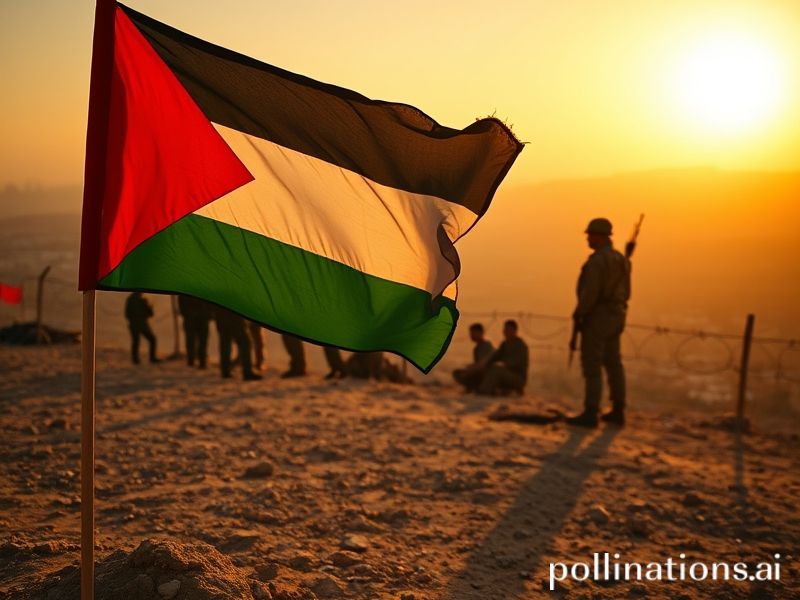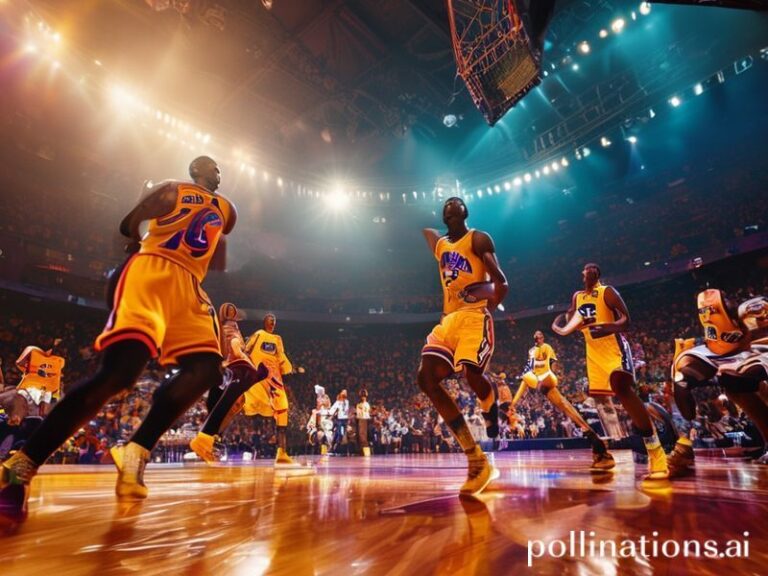143 Countries Just Gave Palestine a Bigger Cubicle: Inside the UN’s Latest Diplomatic Promotion
The world woke up last week to the headline that 143 of the 193 card-carrying members of the United Nations General Assembly had decided, in their infinite collective wisdom, that “Palestine” ought to be seated a little closer to the front of the classroom. Not quite full statehood—more of a diplomatic bar-mitzvah, really: you get to speak at the adults’ table, but you still can’t drive the family car. The United States and Israel, predictably, voted “absolutely not,” while the UK and Germany chose the geopolitical equivalent of mumbling “new phone, who dis?” and abstained. Thus the global status quo performed its favorite party trick: appearing to move while remaining perfectly still.
In practical terms, the resolution upgrades Palestine from “observer entity” to “observer state with additional perks,” a bureaucratic promotion akin to giving someone a bigger cubicle without a raise. Ramallah now has the right to submit proposals, co-sponsor resolutions, and—brace yourselves—sit in alphabetical order with the grown-ups. Tel Aviv, meanwhile, retains the power to ignore all of the above, which is the real international currency these days: the right to pretend a vote never happened.
Still, the symbolism is deliciously inconvenient. For decades, the Palestinian Authority has wandered the corridors of Turtle Bay like Oliver Twist with a keffiyeh, asking for “more statehood, please.” Last week’s vote suggests the other orphans finally took pity and slipped it an extra bowl of gruel. The United States, ever the Dickensian beadle, warned that unilateral shortcuts to statehood are “counter-productive,” apparently preferring the bilateral shortcut known as “whatever Israel and Jared Kushner sketch on a napkin.”
Zoom out and the spectacle looks less like diplomacy and more like a planetary group-therapy session. Europe, feeling guilty about everything from Sykes-Picot to last season’s Eurovision voting, gently pats Palestinian backs while selling Israel the tear-gas canisters it deploys on Fridays. China applauds any vote that needles Washington, then goes home to lecture the Uyghurs on the virtues of territorial integrity. Russia, nostalgic for Soviet days when it could veto the sunrise, cosponsors the resolution with the solemnity of a chess grandmaster who just toppled his own king on purpose. All the while, Gulf monarchies promise billions in reconstruction funds—funds that somehow always arrive after the next war, like ambulances that insist on waiting for the traffic lights.
The broader significance, if one insists on being earnest, is that the international system just admitted—by a margin wider than the Gaza buffer zone—that the 1947 partition plan has aged about as well as cottage cheese in a desert. Borders drawn by dying empires are now being redrawn by live-tweeted massacres, and the only consistent rule is that civilians still pay retail for everyone else’s wholesale decisions. Meanwhile, global supply-chain managers have calculated that the Palestinian question adds roughly three cents to the cost of every flat-screen television; activists respond with TikToks hashtagged #ThreeCentsForFreedom, which trend for nine hours and then vanish into the same digital oubliette as last month’s Sudan updates.
Conclusion? The UN has handed Palestine a larger megaphone, Israel a fresh grievance, and the rest of us another reminder that statehood is not a moral achievement but a bureaucratic subscription service: pay your dues, lobby the moderators, and try not to get suspended. Until someone figures out how to unsubscribe from human nature, the conflict will keep auto-renewing, and the global audience will keep doom-scrolling under the gentle assumption that tragedy plus time equals comedy—when in fact tragedy plus time equals tragedy on demand, streaming 24/7 with optional dark-humor subtitles.







